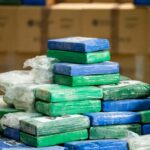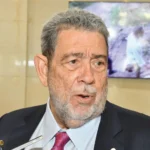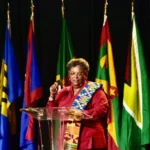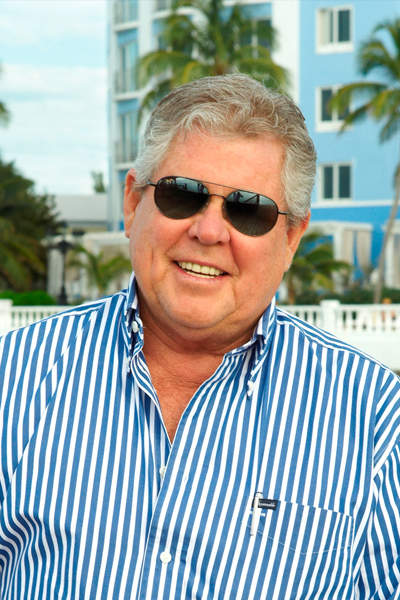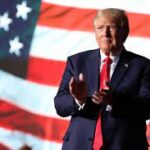Exactly 18 years ago to the day, Gordon “Butch” Stewart, his heart breaking, handed back Air Jamaica to the Government, gave it US$20 million to fund the transition, and washed his hands of the one project that had defied the considerable genius of this marketing superstar.
It was a terrible blow to Stewart, now deceased, after giving it his all and seeing the ‘Love Bird’ soar to new heights before being downed by economic turbulence and especially the political shenanigans of the Administration of the day, which had minority ownership.
“Partnering Air Jamaica with the Government was a nightmare,” he told an interviewer. “They didn’t want to do any of the work and they didn’t keep their promises. We just kept on doing and presuming that the promises would be fulfilled. They never materialised. Our debt-swap agreement reached in 1999 to be signed ‘next week’ was never signed.”
Stewart, like many Jamaicans, had fallen in love with the airline that carried the hope and pride of the nation — the little piece of Jamaica that flies, they would affectionately say. He had taken it over on the brink of extinction and its recovery was nothing short of spectacular.
A rare relationship with customers, Diaspora
He quickly re-imaged the airline; introduced unprecedented innovations such as on-time, no-line schedules, champagne flights and the flying chef; bought new, state-of-the-art planes; and made Air Jamaica the first choice of Jamaican travellers.
The approach taken that none of its aircraft would take off until even the most minute problem was resolved boosted the confidence of its loyal passengers with whom Stewart enjoyed an unusually rare relationship between owner and customers.
These included the once-famous informal commercial importers, or ICIs — a hardy group of mostly women who did a roaring trade selling Jamaican products in places like Miami, Haiti, St Maartin, and Panama and bought popular products to be sold on return home.
These ICIs, previously called higglers, were known for loading up Air Jamaica with copious numbers of boxes that other airlines turned away. For his support they hero-worshipped Stewart.
A down-to-earth man, he also enjoyed the adulation of Jamaicans in the United States, Canadian, and United Kingdom Diaspora who would flood his promotional events and relish the opportunity to chat and laugh with “The chairman”, as Stewart was called.
Handing back the airline was therefore deeply personal to Stewart, and he suffered like a parent who had lost a favourite child. In hindsight, maybe he would have seen it coming had he not allowed his patriotic fervour to cloud his business acumen.
Mike Fennell gets smitten by the ‘Love Bird’
That, of course, was understandable because he was the founder of the phenomenally successful Sandals and Beaches resort chain, and the flagship Appliance Traders Limited (ATL) which, coincidentally, he had started the same year in which Air Jamaica was launched.
And yet, Stewart was not the only outstanding businessman who had, tragically, fallen in love with Air Jamaica. Before him was his great friend Michael “Mike” Fennell who had been lured in to run the airline in 1989.
Fennell was already at the height of a magnificent management career when he let himself be tempted by an offer to be president and CEO of Air Jamaica. It was a bad time to be taking over.
In the streets the Love Bird was re-dubbed ganja bird and ganja plane as drug smugglers seemed to take control of it, putting the airline’s future in doubt. And Fennell was now about to get a rude awakening.
It was not as if he did not know that Air Jamaica had more than its fair share of challenges. When he got the job, good friends joked that they didn’t know whether to wish him congratulations or commiserations. But there was a serious undertone to the pleasantry.
The United States Customs and the Drug Enforcement Administration had the airline under constant scrutiny. A hefty fine followed every shipment of ganja that was detected, and the Americans made it clear that if the fines were not paid, the planes would be seized on US soil.
Fennell was brimming with confidence when he took on the job. Before that he had chalked up big time success as head of the foreign-owned companies Metal Box and Berger Paints, creating history by becoming the first Jamaican managing director of British-owned Berger.
He had taken the company through the politically dreadful 1970s when pro-capitalist and pro-socialist forces fought a bitter ideological battle that had left no one unscathed. If he could do that, Fennell reasoned to himself, Air Jamaica should be a stroll in the park. Really?
On the Monday morning when he reported for work at Harbour Street in downtown Kingston, after he had met the staff and gone through the usual introductory paces, he went into his office and picked up the priority correspondence file. This should give him an idea as to what were the big ticket items that needed his immediate attention.
Nice deal from the Americans
He was not quite prepared for the correspondence on US Customs letterhead that leapt out at him. The airline had been fined US$35 million for a huge shipment of marijuana that was discovered on one of its aircraft. Fennell dropped back in his big swivel chair and involuntarily let out a huge sigh. “Good grief, what have I gotten myself into?” he muttered under his breath.
But the moment lasted only briefly. He reached for an imaginary cigarette, gulped down an imaginary glass of white rum and got busy with the task of fixing the broken wings of an ailing airline.
Fennell’s negotiating skills were outdone perhaps only by his sharp wit. When he finished with the US Customs people they not only reduced the fine from US$35 million, to just under US$3 million, but they agreed that instead of making any cash payments to them Air Jamaica should invest the equivalent amount of money in beefing up security arrangements that would prevent future drug shipments. A nice deal from the supportive Americans.
He recalled the many meetings he had to attend in Washington, DC, as a result of the drug finds. “But they got to understand what we were doing to combat it, and we established very good credibility, and we were also able to bring the drug smuggling under control,” he said.
Fennell had at last clipped the wings of the ganja bird. But as soon as that menace was behind him, he faced a worse nightmare — one this time that had its origins halfway across the world.
Operation Desert Storm
This was 1990. In pursuance of a long historical claim that Kuwait belonged to his country, then Iraqi President Saddam Hussein invaded the neighbouring Arab country and kissed his teeth at the United Nations representing an outraged world.
The United States put together a coalition that successfully drove Iraq out of Kuwait but the war dubbed Operation Desert Storm also drove up the price of oil, with serious repercussions for Air Jamaica.
Fennell launched a determined search for new capital to refinance the airline but flew into all sorts of turbulence.
“We had to go into defence mode,” he described it. “We sought strategic alliances with other airlines. This was successful because all the others were themselves facing major problems as a result of the cost factors emanating from the high fuel prices.”
However, it soon became clear that strategic alliances alone could not help, and things got progressively worse. The airline was having a hard time meeting its day-to-day expenses. The owner, the Government, was unable to provide the required financing, other than guarantees for the old fleet of aircraft. “There was no money for purchasing new planes or opening up new destinations,” Fennell recalled. The airline was in a fight for its very survival and he found himself fighting to salvage his own reputation as a successful manager.
All aspects of the airline’s operations, including the critical element of flight schedules, came under pressure. In the midst of all the problems, however, the airline never stopped paying close attention to its safety record — its ace in the hole.
“Another of our successes was that we were able to retain a slot at Heathrow Airport in London, the preferred destination in England, so that when the airline was sold we were able to resume flights to that airport,” he boasted.
The Government gives up, ‘Butch’ buys Air Jamaica
Feeling that it would never be able to provide the financing needed by Air Jamaica, the Government decided to sell the airline and mandated Fennell to lead the privatisation process. He got top-flight professional assistance in providing a document called an Invitation to Treat. That was followed by many discussions and interviews with other major airlines. The interested parties came from the United States, Canada, and Nigeria. But after all the talk, there were still no takers. Then in May 1994 a group which called itself the Air Jamaica Acquisition Group, or AJAG, was formed to buy the airline. First, the group comprised Peter Rousseau and Ivor Alexander, with a Canadian partner. That collapsed. Then came a John Issa-led initiative. That too collapsed.
Finally, the airline was bought by Butch Stewart, riding on the back of a string of successes at ATL, Sandals Resorts International (SRI), and the Jamaica Observer newspaper, AJAG was supported by National Commercial Bank (NCB).
Stewart had seen that Air Jamaica was in dire straits and in imminent danger of crashing out of existence. Typical of him, he could not just stand by and watch it go down.
He spent 10 years doing everything in his power to turn the airline around. And Air Jamaica soared again.
But even as Stewart fought to get the Administration to fulfil its own obligations to the airline, Air Jamaica was struck by the terrorist attack on the World Trade Center in New York on September 11, 2001, which came to be known as the 9/11 disaster.
That attack changed aviation history and almost brought commercial flying to its knees as the US reacted to the incident by demanding the strictest security operations, and passengers feared leaving their homes.
Stewart redoubled his efforts, at one time offering free vacations to all who fought in the Iraq war that was triggered by the 9/11 tragedy. But alas! It was all too late.
And so, on the day before Christmas Eve, 2004, the nation was shocked to hear the announcement that AJAG had handed back the airline to the Government. Stewart had done his best. It was a hard decision. He had put his life into making the airline viable, putting his lifelong marketing skills and considerable business savvy on the line. And he hurt.
Yet, reflecting on the decade-long odyssey, Stewart said: “If I were called upon again, I would assist the airline. It is Jamaica’s, and there is nothing I wouldn’t do for my country. But, I wouldn’t be caught again in believing that everybody is interested in the success of the airline.”
Stewart died on January 4, 2021.



